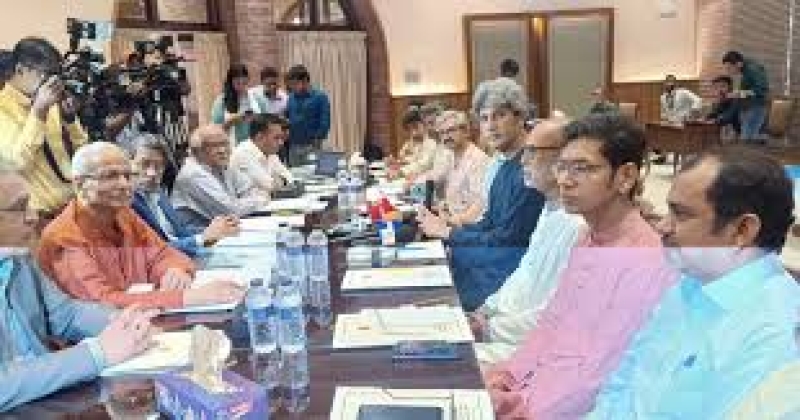- Tarique Rahman to Return Home With Daughter on Dec 25 |
- ILO praises Bangladesh’s labour reforms, new milestones |
- Depositors stranded as Sammilito Islami Bank is in liquidity crisis |
- BNP faces uphill task to reach seat-sharing deal with allies |
- Bangladesh rejects India’s advice; vows free, fair polls |
Democratic unity key to ending Bangladesh’s deep crisis: Ali Riaz

Vice Chairman of the National Consensus Commission Prof Ali Riaz on Sunday stressed the need for the democratic forces to remain united to address the deep-rooted crisis Bangladesh has been facing for a long time.
“There are attempts to address the deep-rooted crises Bangladesh has been facing for a long time. Implementing only the reports of reform commissions is not enough. What we need is to build a democratic state structure and practice democracy. And it is essential for the democratic forces to stay united,” he said while speaking at a dialogue with Ganasamhati Andolon in the morning.
A 10-member delegation of Ganasamhati Andolon, led by its Chief Coordinator Zonayed Saki, participated in the talks at the LD Hall of the Jatiya Sangsad Bhaban.
Presiding over the discussion, Prof Ali Riaz said the collective efforts of people compelled the fascist ruler to flee. “It’s now essential to uphold that unity and carry forward its spirit. This is not just our commitment—it is our obligation,” he said.
He recollected those who gave their lives, fought and were injured and killed in the July uprising and those who had fought against all kinds of oppression for the past 16 years before the uprising.
“We owe a debt to all those who, over the past 53 years, have tried to establish a democratic, accountable and inclusive state in Bangladesh, and a state that ensures citizens’ rights,” he added.
Terming the ongoing dialogue on reforms a step forward, Prof Riaz said they have been able to make progress at least to some extent. “But if we fail to uphold and carry forward it (this progress), all opportunities may slip away. To do so, it needs a collective effort.”
He said they are making collective efforts to build Bangladesh as a democratic and accountable state for not only the present generation but also the future generations, and expressed the hope that a national charter can be prepared soon through the consensus of all political parties.
Consensus Commission members Safar Raj Hossain, Dr Badiul Alam Majumdar and Dr Iftekharuzzaman were present at the discussion moderated by Chief Adviser’s Special Assistant Monir Haider.
On March 20 last, the Consensus Commission opened talks with political parties to forge a national consensus on state reform initiatives.
The commission has already held talks with 17 political parties, including BNP, Bangladesh Jamaat-e-Islami and National Citizen Party (NCP).
Formed on February 15, 2025, under the leadership of Chief Adviser Prof Muhammad Yunus, the Commission was tasked with shaping a unified national stance on critical reforms, reports UNB.

